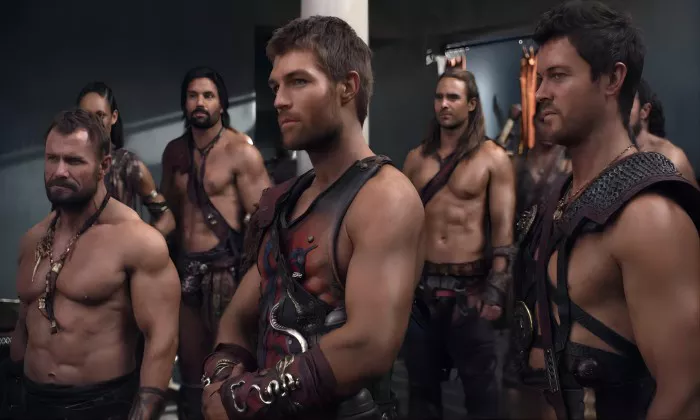Spartacus, the Thracian gladiator who led a slave revolt against the Roman Republic, achieved a level of success that continues to captivate the imagination of people around the world. His rebellion, though ultimately suppressed by the might of Rome, left an indelible mark on history and inspired countless retellings in literature, film, and popular culture. In this comprehensive exploration, we’ll delve into the factors that contributed to Spartacus’s success and the enduring legacy of his rebellion.
1. Leadership and Charisma:
One of the key factors behind Spartacus’s success was his exceptional leadership qualities and charismatic personality. Despite his humble origins as a Thracian warrior enslaved and forced to become a gladiator, Spartacus emerged as a natural leader capable of inspiring loyalty and rallying his fellow slaves to action. His courage, resilience, and unwavering determination to defy the oppressive Roman Republic inspired thousands to join his cause, forging a diverse and formidable army united in their quest for freedom.
2. Military Strategy and Tactics:
Spartacus’s success as a rebel leader can also be attributed to his strategic acumen and tactical prowess on the battlefield. Despite lacking formal military training, Spartacus demonstrated a keen understanding of guerilla warfare and asymmetrical tactics, employing hit-and-run maneuvers, ambushes, and surprise attacks to outmaneuver and outwit Roman forces. His ability to adapt to changing circumstances, exploit enemy weaknesses, and maintain the morale of his troops allowed Spartacus to achieve a series of impressive victories against superior Roman legions.
3. Unity and Cohesion:
Another key factor in Spartacus’s success was the unity and cohesion of his rebel army, which consisted of slaves, freedmen, and even some Roman deserters. Despite their diverse backgrounds and languages, Spartacus’s followers were bound together by a common desire for freedom and a shared sense of solidarity against their oppressors. Spartacus fostered a sense of camaraderie and mutual respect among his troops, instilling discipline and unity through strict leadership and a code of honor that emphasized loyalty, bravery, and sacrifice.
4. Support from Local Populations:
Spartacus’s rebellion received significant support from local populations in the regions of southern Italy and Sicily, where the majority of his military campaigns were waged. Many peasants, farmers, and even some members of the lower classes sympathized with the plight of the rebel slaves and offered them refuge, supplies, and assistance in evading Roman pursuit. The support of local communities provided Spartacus and his followers with vital resources and logistical support, enabling them to sustain their rebellion and evade capture for several years.
5. Weaknesses and Disarray within the Roman Republic:
Spartacus’s success was also facilitated by weaknesses and internal divisions within the Roman Republic itself. During the time of Spartacus’s rebellion, Rome was embroiled in political turmoil, social unrest, and military conflicts on multiple fronts. The Republic was plagued by corruption, economic inequality, and political infighting, which undermined its ability to effectively respond to the threat posed by the slave revolt. Additionally, the Roman army was stretched thin due to ongoing wars and military campaigns, making it difficult to allocate sufficient resources to suppress the rebellion.
6. Symbolism and Mythos:
Spartacus’s success as a rebel leader can also be attributed to the symbolism and mythos that surrounded his persona and the legacy of his rebellion. Spartacus came to embody the ideals of freedom, justice, and defiance against tyranny, resonating with people from all walks of life who yearned for liberation from oppression. His story inspired hope and courage among the oppressed and served as a rallying cry for future generations of rebels and revolutionaries seeking to challenge the status quo and fight for a better world.
7. Legacy and Cultural Impact:
While Spartacus’s rebellion was ultimately suppressed by the Roman Republic, its legacy endured long after his passing, inspiring countless retellings in literature, art, and entertainment. The story of Spartacus has been immortalized in numerous works of fiction, including novels, plays, films, and television series, each offering its own interpretation of the legendary gladiator’s life and exploits. Spartacus’s rebellion continues to serve as a symbol of resistance and liberation, reminding people of the enduring power of the human spirit to overcome adversity and challenge injustice.
Conclusion:
In conclusion, Spartacus’s success as a rebel leader can be attributed to a combination of factors, including his exceptional leadership qualities, military strategy, and tactics, unity and cohesion among his followers, support from local populations, weaknesses within the Roman Republic, and the symbolism and mythos that surrounded his persona. Despite the eventual suppression of his rebellion, Spartacus’s legacy lives on as a testament to the enduring struggle for freedom and justice against tyranny and oppression. His story continues to inspire and resonate with people around the world, serving as a timeless reminder of the indomitable human spirit and the quest for liberation.
Related Topics:
Spartacus: A Cinematic Epic of Rebellion and Redemption
Why is Spartacus series so popular?

